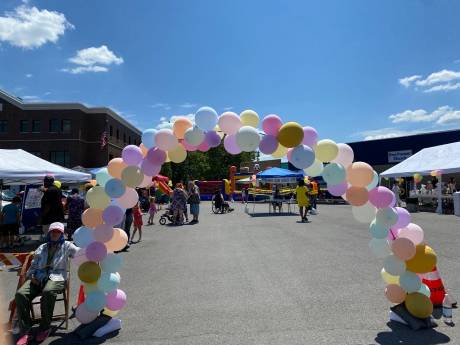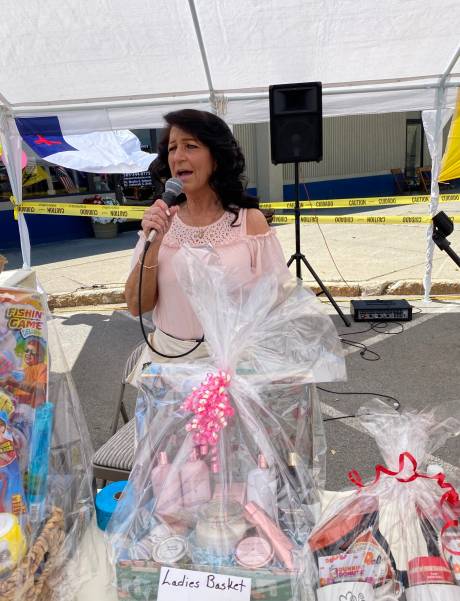Call it a glitch, snafu or small bump in the works, but when the city’s power plant stopped pumping out water this past weekend, it was a good test for city and Genesee County officials, Tim Hens says.
A “controller issue” involving a sending unit in a control panel “died” Sunday, he said.
"We had a, I wouldn't even say it's a near miss, I think I'd say it was a direct hit yesterday with the water plant in Batavia," Hens said during Monday's Public Service Committee meeting. "They had a controller issue ... there's basically a signal when the clear wells fall it sends a power signal to the pumps to turn off. The sending unit in the Control Panel basically died and defaulted to the off position. So there was no power going to the pump. So for about a two-hour period yesterday afternoon, there was absolutely zero water coming out of the Batavia Water Plant."
The county highway superintendent said that water storage tanks were being used in lieu of working pumps. He called the incident a “hiccup,” however he used the scenario as a warning that there’s not a limitless supply of water. He presented it to the committee because Genesee County owns the water plant and the City of Batavia is responsible for operations per a water agreement between the two entities.
Legislator John Deleo asked how long could the existing water supply have lasted before it emptied out. Hens estimated eight hours. There was “a lot of cooperation” between the city, county and town, he said, and backup plans that included reaching out to Erie County if needed.
When the pumps stopped working, water levels dropped in the tanks pretty quickly, Hens said.
“We called the Water Authority, and they increased their pumping at North Road up to about 3.5 million gallons, which is the highest we've ever pushed through there,” he said. “We were ready to pull the trigger with Erie County to open that valve up too, but by the time we had gotten to that point, the city figured out that sending unit and basically short-circuited it, and it's been running on manual ever since.”
Once the pumps were back working, the city was able to recover their tanks fairly quickly to normal levels, he said.
The Batavian reached out to City Manager Rachael Tabelski Monday evening for further comment, and she said the incident happened around 2:30 p.m. Sunday.
"Pumps that pump finished water into the system malfunctioned and threw an alarm because the sensor could not detect water in the clear well," she said. "To stopthe issue with the sensor alarm, city water plant employees cut the power to the pumps. When the power was restored, the pumps failed to restart."
Nelson Weibel, chief operator of the water plant, was able to re-engineer the system for it to become functional again, she said.
Three each of former and current employees, Water and Wastewater Treatment Plant Superintendent Michael Ficarella, Tabelski and an electrician were called in to help troubleshoot the problem, which Tabelski said seemed to be fixed by 5 p.m., although a second failure occurred "that was quickly remedied."
A sensor company technician visited the plant Monday and provided a demo sensor system as a temporary fix until the unit is replaced, Tabelski said.
If those pumps had not been restored when they were, city customers may have been affected in three to six hours, she said.
There was also coordination with the city Fire Department and county Emergency Management Services to prepare a water drafting plan in the event of a fire.
Tabelski was grateful for the "skill, dedication and ability" city employees demonstrate to solve critical problems under pressure, she said.
"I would like to highlight the dedicated city employees who are trained and licensed to provide drinking water to residents and businesses," she said. "We have operators on staff 24/7 ensuring the quality of water from the plant is safe, and I would like to personally thank them for their hard work and dedication."
Meanwhile, officials are hoping the rain “tamps back the demand a little bit and buys us a little bit of time,” Hens said.
“This is the kind of stuff that we've been worried about for years now. In this case, we were lucky that it was only a two-hour (period) and we got through it. But really, other than getting as much water as we can from Monroe County, there is no other Band-Aid. We can't just put another pump somewhere and pump water,” he said. So if it had gone on for any extended period of time yesterday or into the night, we would have probably lost, we would have been able to replace probably half of the capacity of the plant, but we would have been short about 2 million gallons.”
“That’s why we’re asking people to not water their lawns or wash their cars. I don’t know why people are trying to fight Mother Nature,” he said. “No matter how much water you use, you can’t fight dry ground.”
In past years, the county’s pleas for reduced water usage were heeded, and it made a tangible difference, Hens said. With a concerted effort to use less, “it can knock off about 300,000 gallons a day.”
Watering one’s home lawn uses up to 2.5 gallons per minute, which would be 150 gallons in an hour. Maybe that doesn’t seem like a whole lot, but it’s not just one household setting up the sprinkler, he said. With a population of just under 60,000 county residents, a modest estimate of 500 households regularly water their lawns. That’s 300 gallons for two hours multiplied by 500, which is 150,000 gallons.
And then say those residents are watering three times a week, for a total of 450,000 gallons of water each week. If this practice is done throughout the summer, which is approximately three months long, or 12 weeks, that adds up to 5.4 million gallons of water going into the ground. That’s not counting watering one’s garden or vehicle.
While the county is doing its part, he said, Hens is also taking personal responsibility to reduce water usage.
“Since I'm the one preaching to not to use water, my vegetable garden is the worst vegetable garden on the East Coast right now. My tomato plants are only about four inches tall,” he said. “So I'm doing my part … I'm not even using the water at my house.”
 Submitted Photo: Addy, Carter, and Ethan Gubb pause during a picnic to admire the historical sign at the front of the First Presbyterian Church of Elba. Their family ties to the congregation go back to 1914, when their great-great-grandmother, Bessie Talbot Gubb, became a member. The church is celebrating its 200th Anniversary this year and hosting a bicentennial birthday celebration at the Elba Village Park on Saturday, August 13, from 2-4 p.m.
Submitted Photo: Addy, Carter, and Ethan Gubb pause during a picnic to admire the historical sign at the front of the First Presbyterian Church of Elba. Their family ties to the congregation go back to 1914, when their great-great-grandmother, Bessie Talbot Gubb, became a member. The church is celebrating its 200th Anniversary this year and hosting a bicentennial birthday celebration at the Elba Village Park on Saturday, August 13, from 2-4 p.m.











































